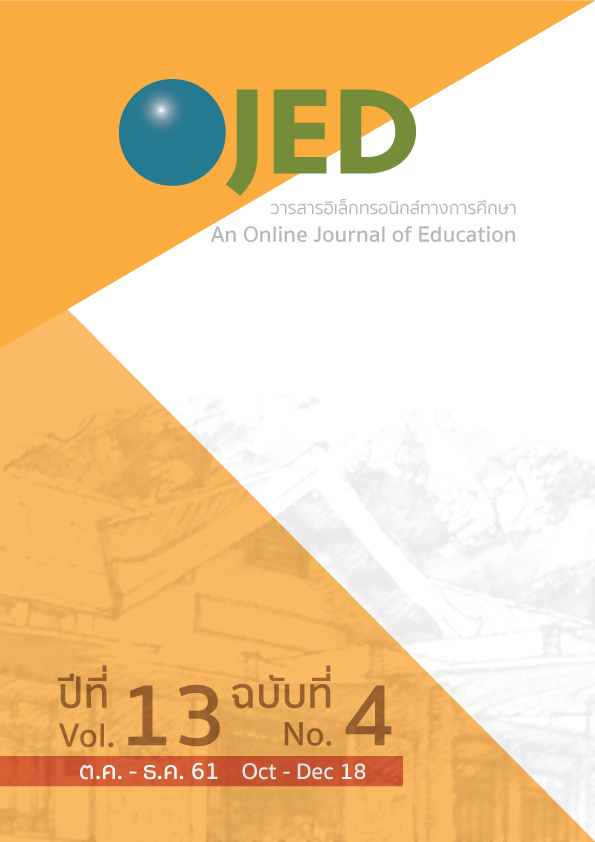EFFECTS OF TEACHER’S MOTIVATING STYLES ON LEARNER AUTONOMY OF ENGLISH AS A FOREIGN LANGUAGE ELEMENTARY STUDENTS
Keywords:
TEACHER’S MOTIVATING STYLES, CONTROLLING STYLE, AUTONOMY- SUPPORTIVE STYLE, LEARNER AUTONOMYAbstract
The aims of this study were 1) to investigate the motivational style of the teachers and 2) to observe teacher’s instructional and motivational style in practice and learner autonomy in the classroom. The two main teacher's motivational styles this research focused on were controlling and autonomy-supportive style. The participants of this study were 12 grade 1 and 2 teachers from 4 Demonstration Schools. Quantitative data was analyzed using questionnaire and Qualitative data was analyzed using observation and stimulated recall. The results of the analyses revealed that 1) the percentages reveal that all teachers scored higher on autonomy-supportive style than controlling style, ranging from 90.00% to 53.33% 2) classroom observations revealed that teacher with higher autonomy-supportive motivating style led to learner autonomy in classroom compared to teacher with medium and lower autonomy-supportive style and 3) stimulated recall gave qualitative in-depth perspective from teacher’s point of view that their motivating style linked to learner’s autonomy in their classroom. It can be implied that EFL elementary teachers motivating style is autonomy-supportive and sporadically promote learner the autonomy when conducting a lesson. Research from this study is particularly useful for teachers teaching English as foreign language to elementary students.




